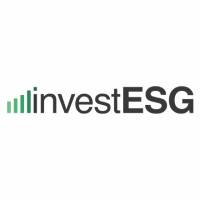EU: Stop the clock proposal would create more uncertainty
Firms might face unclear road ahead after having spent time and resources in preparing for CSRD compliance

Photo credit: William Warby / Unsplash
The EU has signalled its support for the ‘stop-the-clock’ proposal, officially delaying reporting deadlines for the Corporate Sustainability Reporting Directive (CSRD) by two years, plus a one-year extension for the Corporate Sustainability Due Diligence Directive (CSDDD).
Tom Willman, Regulatory Lead, at sustainable technology firm Clarity AI explains why the regulatory changes create even more uncertainty for firms, as they have spent time and resources in preparing for CSRD compliance – only for the goalposts to be moved at the last minute.
“Once approved, the “stop the clock” would introduce a two year delay to the reporting under CSRD. This would affect Wave 2 companies (+250 employees and either a €25 million balance sheet or €50 million in revenue) and Wave 3 companies (listed SMEs). This means companies originally set to start reporting in 2026 (Wave 2) and 2027 (Wave 3) could have two extra years to prepare.
“This delay is intended to be an interim measure, offering some temporary relief to companies as the broader substantive proposal travels through the EU institutions. However, the likely direction of travel suggests that most Wave 2 and 3 companies will eventually be removed from CSRD’s scope, making this delay more of a transition step toward full exemption rather than a temporary reprieve.
“We expect the “stop the clock” proposal to be passed. For some this would represent a welcome temporary relief but for others it may be a source of frustration. Some Wave 1 companies have argued the relief should have applied to them too. Many companies in Wave 2 and even Wave 3 have already invested significant time and resources in preparing for CSRD compliance, and now find themselves in a more uncertain position than before.”

